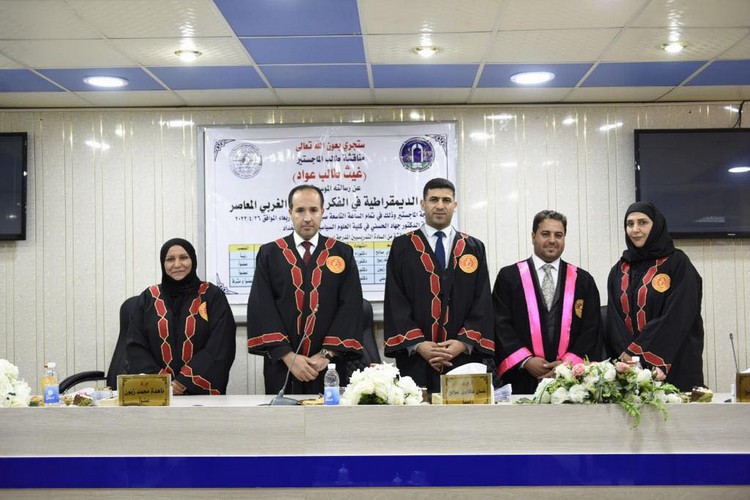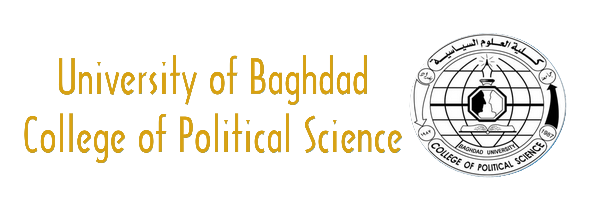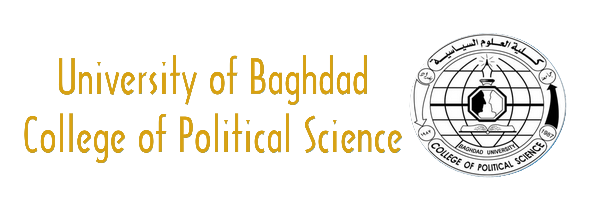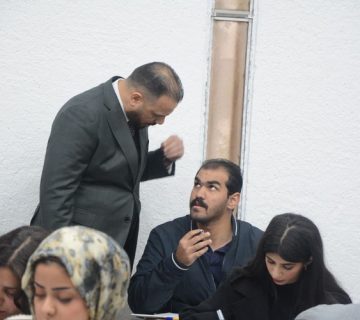The College of Political Science at the University of Baghdad discussed the master’s thesis entitled “Criticism of Democracy in Contemporary Western Political Thought” by the student “Ghaith Talib Awwad”
The thesis clarified that democracy, as a theoretical construct and a social system, is the most important creation of the Western political mind, which seeks to organize individuals within different social contexts despite the multiplicity and diversity of their starting points and orientations. It manages their differences for achieving state’s refined aims represented by ensuring justice and welfare for citizens. For the citizens, it may seem to many listeners that the criticism of democracy basically means the rejection of everything related to freedom, equality, justice, and the mechanisms of peaceful transfer of power, and thus the support of everything related to dictatorship and totalitarian regimes that use oppression and coercive methods towards their citizens, as the subject is the exact opposite of that perception. Where the study of this subject of criticism of democracy (the reform side) took it, since the latter became an ideal concept of governance, superior to all authoritarian regimes that lack the sublime principles that preserve human dignity, human rights, citizenship, and other principles that democracy includes as a system of government.
This study proceeds from a conceptual approach that begins with the concept of democracy and its types, and then deals with its mechanisms and foundations. The study begins with an introduction and then an introductory chapter dealing with the conceptual framework of democracy to be an introduction to the study of criticism of democracy among philosophers of Western political thought. The first chapter deals with intellectual origins of democracy criticism in many ages starting from old Greek times, middle and Roman ages, modern times, after renaissance. As for the second chapter, it deals with the criticism of democracy at the extreme right currents such as (fascism, Nazism, and populism), it sheds light on selected models that represent these currents, and their most prominent thinkers and early pioneers, such as (Giovanni Gentile of Italy and Karl Schmidt of Germany) and others.













